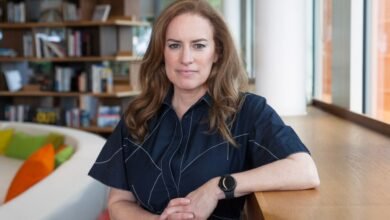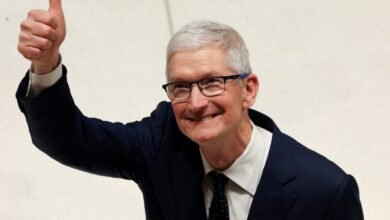There’s a new power player at CVS after Karen Lynch’s dismissal—but he’s not CEO

When CVS Health abruptly announced that high-profile CEO Karen Lynch was leaving immediately, to be replaced by company executive David Joyner, another announcement followed in smaller type: “Roger Farah Named Executive Chairman of the Board.”
It doesn’t sound exciting, and it’s unlikely many people recognized Farah’s name, but investors should pay attention. At least strictly speaking, Farah, 71, has become the most powerful executive at this troubled company. His role in CVS’s turnaround attempt will probably be significant, and if few people know his name, that will be fine with him. When it’s suggested that his career consists largely of high performance and a low profile, he responds, “Thank you—that’s my strategy.”
The evidence of Farah’s newly conferred power at CVS is indicated by a single word: “executive.” He had already been chairman of the board for two years, but the difference between chairman and executive chairman is all the difference in the world. Directors who aren’t company employees do not have executive responsibilities. But “executive chair means executive management,” says Charles Elson, a corporate governance expert who has served on multiple boards. “When you’re executive chair, the buck stops with you. You’re the real CEO.”
Farah tells Fortune that, in keeping with his lifelong career strategy, he won’t be like that. “I have a lot of experiences in my career that I hope to bring to bear, but only in support of David, who is the CEO,” he says. “There should be no misunderstanding. I’m here to help. If you know anything about my track record, that’s what I try to do.”
Farah has indeed built a long history of improving the performance of companies, mostly behind the scenes. He joined Ralph Lauren in 2000—he and Ralph had adjoining offices—when much of that business was managed through licensing partnerships for various products and territories. He got direct control of those businesses, enabling the company to manage the brand at a more consistent and upscale level. The stock price had been drifting downward for three years when he arrived, but it rose ten-fold in his 14 years at the company. Today he’s famous in the fashion industry, but outside it, Ralph Lauren is famous.
It was a similar story at Tory Burch, where he helped a brand-name designer manage and build a highly successful business. She’s famous; he isn’t. Then, in 2017, he joined the Tiffany board of directors at the behest of activist investors; he rose to chairman a few months later. He had to handle LVMH’s purchase of Tiffany, a tense assignment because LVMH threatened to cancel the deal after the pandemic arrived in the midst of negotiations. The deal closed on good terms for Tiffany.
It may seem odd that this expert in luxury products has become CVS Health’s executive chairman. The explanation is that he joined the Aetna board in 2007, and CVS bought Aetna in 2018—and now Aetna is the problem. “A lot of the company is working, but part of it’s not,” he says, “The macro issues in the insurance business are challenging for everybody, but we have some of our own issues.” So what’s the next step? “We need to improve performance, for sure. I think David Joyner will lay out and articulate his plan within the next month or two.” Still, “it’s not a quick fix,” he says. “It’s a couple years of hard work to get us back to where we should be.” What needs fixing? “I want to focus on talent and organizational development and culture—that’s how I plan to spend my time.”
He emphasizes that he won’t be like other executive chairs. “It’s different from owner-founders or former CEOs who become executive chair, and there’s a lot of confusion over where does their role start and stop. That’s not the case with me.”
No one should expect to hear much from Farah in the media through these next couple of years. But if history is a guide, investors at least have reason to hope that two years from now, CVS Health will have somehow made progress against its problems.
Source link



